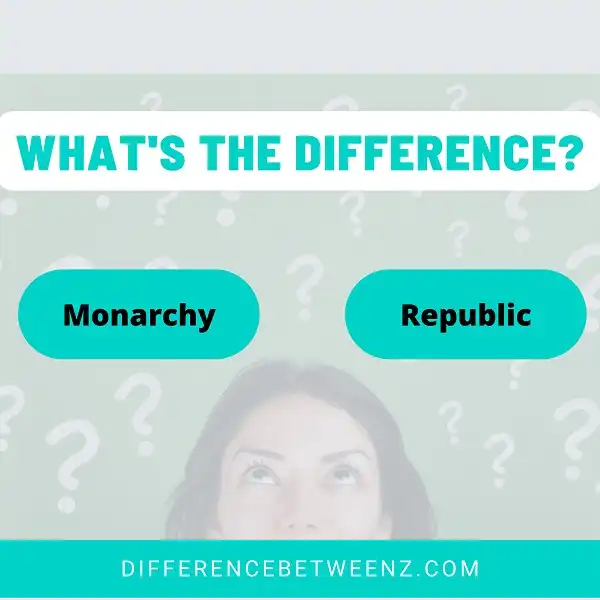Monarchy vs. Republic
There are different forms of government, each with its particular characteristics. There are some types more badly than others and at the moment some are about to disappear.
Among the forms we know best are the republic and the monarchy. What kind of government is there in your country? Monarchy or republic? If you do not know what to answer because you do not understand the difference between the two systems, read below to understand what distinguishes them.
Republic
The republic is a standard form of government. It is based on the principle that there should be no monarch and that the people who make up the state should be able to choose their own representative. Machiavelli helped to define the concept of republic by means of his work and in addition, he argued that this was better form of government in comparison with the others.
In this system, people can choose someone to represent their interests. People have rights and are not simply kept under authority. To ensure the rights of citizens, the laws set forth in the Constitution are followed.
As in the republics there are no monarchs, the head of state receives the title of President. If this is also the head of government, the system is known as the presidential system. It is important to have this detail clearly, because within the republic there are different ways of governing. In some States, the main political role is not exercised by the President; but by the Legislative Assembly. In these cases the presidential role is purely ceremonial. These states are known as parliamentary republics and operate in a manner similar to parliamentary monarchies where the power of the President is quite restricted.
In parliamentary systems, the prime minister is the head of government and is the one who exercises the highest authority.
Monarchy
A monarchy is a form of government in which power is primarily exercised by an individual ruler or monarch. It is a political system based on inheritance (the monarch’s relatives succeed), in which people are not authorized to cast votes.
The crown is transmitted from one generation to another. The word monarch derives from the Greek word monarchs which mean “that governs alone “.
In the monarchy, it is necessary to be part of the royal family in order to aspire to the throne. For example, the monarch’s children are online to receive the title and power. Monarchs also use other titles such as king – queen, emperor – empress, duke or duchess. E l title is held for life or until abdication.
The monarch makes all the decisions throughout the state and the people. Not all citizens are treated equally before the law; some people have a higher preference depending on their rank. Citizens can obtain privileges, rights, and freedoms depending on the inclinations of the monarch.
There are different types of monarchies: constitutional monarchy, parliamentary monarchy, absolute monarchy and hybrid monarchy (between absolute and constitutional).
Key Differences between Republic and Monarchy
- The republic is a form of government in which the people or their representatives possess the supreme power, whereas the monarchy is a form of government in which the power is usually restricted to an individual in particular (the monarch, king, emperor … ).
- In the monarchy the power is received by inheritance (the most direct relatives of the monarch succeed it); while in the republic it is the people who vote to choose their representative.
- In the republic there is equality in the legal treatment of citizens, while in the monarchy the legal treatment can be determined by the range that has.
- Examples of republics: France, Russia, Mexico, United States, Dominican Republic …
- Examples of monarchies: United Kingdom, United Arab Emirates.


